
© » KADIST
Jeffry Mitchell
In Man and Pet (2012), two benign ceramic figures smile sweetly upward. The man wraps his small companion in a hug, his arms extending in round arcs all the way to his feet. Though the expressions are strikingly similar—suggestive of Rockwellian Americana—the pet seems somewhat more genial and familiarly fuzzy than its owner, whose saurian pupils lend his face a reptilian air that belies his warm grin.

© » KADIST
Jeffry Mitchell
Poised with tool in hand, Jeffry Mitchell’s The Carpenter (2012) reaches forward, toward his workbench. It is difficult to tell whether the work represents just any carpenter or Christ, the most famous member of the profession and the subject of innumerable parables and artworks. His stilted pose is not too Messianic; drips of ochre glaze render his handiwork and hammer equally soft.

© » KADIST
Jeffry Mitchell
Though the title might suggest an Adonis, Jeffry Mitchell’s The Swimmer (2012) is a squat, jolly man with a protuberant belly. The stocky figure lets his arm drop to his side, towel dripping on the ground. Mitchell’s umber-toned glaze makes everything look earthy and wet, primordial and warm.

© » KADIST
Judy Chicago
Domes #1 represents a significant moment in Chicago’s career when her art began to change from a New York-influenced Abstract Expressionist style to one that reflected the pop-inflected art being made in Los Angeles. By 1968, the year she began creating Domes , the twenty-nine-year-old artist had moved from Chicago to Los Angeles, graduated from UCLA, and was part of a generation of artists whose work was characterized by of the masculine overtones of Southern California’s flourishing car culture. Inspired by new technologies in the auto manufacturing, these “Finish Fetish” artists appropriated industrial materials such as car paint or lacquer to create artwork with pristine finishes.

© » KADIST
Adrian Villar Rojas
Drawing & Print (Drawing & Print)
Based on historical prophecies and fantasy, the artist creates apocalyptic scenarios that posit an enigmatic world plagued by social, political, and environmental upheaval. Untitled (Set of Six Drawings) (2012) is an intricate watercolor of a child sitting cross-legged with its head stuck inside a giant mask resembling a duck head covered with eyes. It looks like a scene snatched from science fiction or a surreal dream; it is tempting to see in it some kind of warning sign, or an ominous vision of the future.

© » KADIST
Adrian Villar Rojas
The two drawings in the Kadist Collection are part of a larger series entitled Las Mariposas Eternas (The Eternal Butterflies). They are studies for two large sculptures that explore the role of monuments and emblems in the configuration of Latin American national identities. The first drawing reproduces an equestrian statue of Juan Lavalle, one of Argentina’s independence heroes.

© » KADIST
Jedediah Caesar
After being cast, the resulting resin block used in JCA-25-SC was cut into thin slices obtaining a series of rectangular shapes that resemble ceramic tiles. Usually displayed in grid against the wall or in a corner, the viewer is able to follow the sequence of cross sections to visually recreate the work’s genesis. In this way, Caesar’s pieces embody an interesting x-ray or archaeology of the artistic process itself.

© » KADIST
Claudia Martínez Garay
escenario chacana by Claudia Martínez Garay is a sculptural work composed of a frame-like structure that contains a series of ceramic pieces. It references the Chakana, an Andean cross that encompasses the different levels of existence (known as Pachas) and sacred elements contained in the Indigenous cosmologies of the region. It often appears in the geometrical motifs of textiles and ceramics.

© » KADIST
Shimabuku
For the two-channel work Asking the Repentistas – Peneira & Sonhador – to remix my octopus works Shimabuku asked two Brazilian street singers to compose a ballad about his previous works with octopi (in which he created traditional Japanese ceramic vessels to catch octopi, with a fisherman who took him on his boat to test them out as we can see on one of the channel). In the Brazilian singers’ ballad, Shimabuku is transformed into a fisherman, the greatest fisherman in Japan, but a kindly fisherman who returns his catch to the sea. The artwork thus becomes facilitator for an interaction between different cultures and interpretations.

© » KADIST
Thea Djordjadze
The sculpture And Shadows Will Follow is an angle piece that articulates a space since its appearance highly changes depending on the point of view. Initially conceived for an exhibition with natural light, this work diffracts light and projects a shadow like a cut-out. Surprisingly the work stands like a drawing in space, a graph and its imprint, a line and a point.

© » KADIST
Cross Lypka
tombs and ignitions is a collaborative ceramic sculpture by artists Tyler Cross and Kyle Lypka. The work was translated by Kyle Lypka from Tyler Cross’s original drawing into three dimensions by coil building upwards. Lypka chose to coil build instead of using slabs because, although very flat and geometric, he believed that the form would benefit from the more organic technique of coil building, which after drying and firing tends to twist and pull, adding a sort of paradoxical swing and motion to the work’s angularity.

© » KADIST
Mariana Castillo Deball
Mariana Castillo Deball’s set of kill hole plates are part of a larger body of work problematizing archeological narratives, and drawing attention to the conservation process and its role in recreating an imagined object. They are playful and exaggerated representations of “kill hole pottery” — ceramic dishes in the Mimbres tradition with distinct circular holes located in the center of the pots. Although very little is known about the Mimbres culture’s specific beliefs, they are loosely understood to have terminated the object symbolically in preparation for funerary use.

© » KADIST
Phoebe Collings-James
The Subtle Rules the Dense is a series of masks/torsos/body plates that Phoebe Collings-James cast from mannequins and then worked by hand. The resulting objects lie ambiguously between a representation of a human torso and a shamanistic mask. The work is reminiscent of Yoruba and Makonde body masks that portray pregnant forms, as well as Roman armor with nipple rings.

© » KADIST
Martin Kippenberger
Drawing & Print (Drawing & Print)
Untitled is a work on paper by Martin Kippenberger comprised of several seemingly disparate elements: cut-out images of a group of dancers, a japanese ceramic vase, and a pair of legs, are all combined with gestural, hand-drawn traces and additional elements such as a candy wrapper from a hotel in Monte Carlo and a statistical form from a federal government office in Wiesbaden, Germany. Text cut out from a Newspaper spells out in German “Egg hunting in the Bavarian forest” and an additional piece of text reads in all capitals “BIN DABEI DU AUCH” (“I’m here too” in English). Together, all the messages and geographies from the separate elements suggest an alternative, highly stylized portrait of the artist; in this case, a fragmented, fluid, and itinerant sense of identity.

© » KADIST
Cynthia Gutiérrez
Estratos II by artist Cynthia Gutiérrez features a large white plinth with a transversal cut through the lower half, revealing a collection of archeological objects. These pieces of history have seemingly been lost to time and have lived covered under a sterile exterior. To create the ceramic objects for this project, Gutiérrez worked closely with an artist that creates Mesoamerican replicas.

© » KADIST
Matti Braun
During a residency in 2009 at L’appartement 22 in Rabat, the artist traveled in Morocco and Senegal on the traces of the German sculptor Arno Breker. On this occasion he learned about batik, a fabric printing technique which originates not only from Indonesia but also from Senegal. It is also widespread in Africa.

© » KADIST
Taloi Havini
Following her family’s political exile to Australia in 1990, Havini began to document her journey’s home to the north of Buka Island, in the Autonomous Region of Bougainville. Reflecting on the still visible aftermath of conflict and changing economic factors, Havini creates traditional beroana or shell money from extracted earth materials only found on Solomon islands like Bougainville. Havini’s whirling assemblage of ceramic discs emulate the strings of shell money (still valid around the Pacific as system of payments) to examine the economic changes that occurred in her homeland.

© » KADIST
Ximena Garrido Lecca
Destilaciones ( Distillations , 2014) is an installation composed of a group of ceramic pots, presented on the floor and within a steel structure. Copper pipes run through the perforated ceramics, evoking the design of an oil purifier. The work is a direct reference to the history of the Peruvian coastal town of Lobitos.

© » KADIST
Cici Wu
Unfinished Return of Yu Man Hon by Cici Wu is delicate, but physically much more robust than Cici Wu’s earlier works. What continues is the sense of longing, of something unresolved; it is haunting, like the images from a dream that we try to remember upon waking up. Unfinished Return of Yu Man Hon revolves around the story of a developmentally challenged young boy, who purportedly disappeared during the handover of Hong Kong by the British to Chinese governance.

© » KADIST
Jessica Warboys
The ongoing “Sea Paintings” series is central to the practice of Jessica Warboys. The series plays with the notion of ritual, performance, nature and consequence. The artist realises her “Sea Paintings” on the Zennor coast, near St Ives, where she emerges the canvas in the seawater, allowing the waves and the wind to mix the raw mineral pigments that have been applied by hand to damp folded canvases.

© » KADIST
Ana Navas
Ana Navas uses humor to address formal, aesthetic, and societal conventions that are interwoven in the everyday through the normalization of gendered behaviors and style choices used to project personal and collective signifiers. In her Donation Vases she uses quotes taken from corporate coach Lois P. Frankel’s book Nice girls (still) don’t get the corner office: Unconscious Mistakes Women Make That Sabotage Their Careers (2004). The aspirational, somewhat cynical tone of the sentences – “When given a choice, sit next to most powerful person, their power will cascade over you,” “Why is it that women buy those little chains to hang reading glasses around their necks,” “If you see your reflection on a glossy surface & notice something wrong, avoid fixing it there” – reveals a particular understanding of what a professional, ambitious cis woman should look like, the persona she should project, and the type of desirable behaviors that constitute a stereotypical “successful woman” according to a capitalist morality.

© » KADIST
Masaya Chiba
Fairy #2 (2011) depicts a surreal scene of roughly assembled household ephemera, potted plants, and a faintly visible figure rendered in thin red line. The picture shows a grouping of tables and stools arranged in a dense cluster. A collection of objects, all brown or burlap-hued, cover their surfaces: ceramic pots, wooden planks, roughly geometric wooden sculptures, and even a small figure that perches precariously atop of miniature cube alongside a forked wood finish form.

© » KADIST
Daniela Ortiz
The Rebellion of Roots by Daniela Ortiz depicts a series of situations in which tropical plants, held hostage in the botanical gardens and greenhouses of Europe, are protected and nurtured by the spirits of racialized people who died as a result of European racism. The work is divided into four short stories: About Afghanistan and heroin , About Exposition Colonial and cow , About Jardin d’acclimatation and potato , and About Vietnam . The series of 14 painted panels draw upon the aesthetic of ex-votos, a genre of traditional religious folk painting that acts as a tribute for divine intervention in response to personal tragedy.

© » KADIST
Daniela Ortiz
Previously, Ortiz produced a series of photographs related to her research on the position of ‘service architecture’, the vital space given to domestic servants in the modernist architectural houses of South American upper class families. Following the same formal principal, she has developed a new series called Estat nacio . This work presents a critical point of view on the construction of a national sovereignty through speeches and laws concerning people who are not considered as citizens according to immigration legislation and the regulations affecting immigrants’ rights and freedom.

© » KADIST
Daniela Ortiz
In her work, Maids Room (2012) which is part of a series, Daniela Ortiz undertakes an architectural analysis of the houses belonging to the upper class of Lima. Her research highlights the position of ‘service architecture’, the vital space given to the domestics. The project offers an analysis of this room, its size and its position in relation to the rest of the house.

© » KADIST
Minia Biabiany
Qui vivra verra, Qui mourra saura is an installation by Minia Biabiany composed of the plan of a house made out of strips of salt, and a “garden” made of ceramic pieces, hanging from the ceiling and on the floor, and non woven fabric. She uses blue and red filters to alter the hues of light coming from the outside. The work focuses on the disappearance of traditional knowledge associated with the “jardin de case” outside Guadeloupean houses.

© » KADIST
Nathalie Djurberg
Apparently Djurberg’s mother made a puppet theater and traveled around Göteborg performing during her childhood. This short story of a young man initially listening to birdsong in a city, suddenly confronted to warfare and wounded, could visually resemble child’s doll game or mise en scène, with a high dose of cynicism and violence. The figure, Hans, is attended to by two nurses whose raw discussion appears in speech bubbles: “we’ll have to amputate”.

© » KADIST
Natsuko Uchino
Squid Currency is a series of 13 non-calibrated double-sided tin coins made using a casting technique dating back to Neolithic times where cuttlebones (squid bones) were carved by hand and then used as a mold. Natsuko Uchino draws on research into tin mining across the world, which takes place largely in China and Bangladesh as well as in Potosi, Bolivia where silver has been depleted due to the production of coins and other ornate riches during the 16th century Spanish Empire. Tin has a low melting point and is easily up-cycled from vessels such as measuring cups and kitchen utensils found at yard sales.

© » KADIST
Gabriel Orozco
Gabriel Orozco comments: “In the exhibition [Documenta 11, Kassel, 2002], I tried to connect with the photographs I took in Mali in July. I traveled to Mali for three weeks and took some photographs related to my work. They are very different, but there are links as the graveyard of Timbuktu, which I discovered during the trip.
Daniela Ortiz
In order to reveal and critique hegemonic structures of power, Daniela Ortiz constructs visual narratives that examine concepts such as nationality, racialization, and social class...
Jeffry Mitchell
The Seattle-based sculptor Jeffry Mitchell creates cartoonlike creatures from low-fire earthenware...
Adrian Villar Rojas
- year born: 1980
- gender: male
- nationality: Argentinean
Seba Calfuqueo
Seba Calfuqueo is an artist of Mapuche origin whose work critically reflects on the social, cultural, and political status of the Mapuche people in contemporary Chilean society...
Judy Chicago
- location: Belen, New Mexico
- year born: 1939
- gender: female
- nationality: American
- home town: Chicago, Illinois
Gabriel Orozco
- location: New York City, Paris
- location: Mexico
- year born: 1962
- gender: male
- nationality: Mexican
- home town: Jalapa, Mexico
Taloi Havini
From the Nakas clan, Hakö people, interdisciplinary artist Taloi Havini was raised in Arawa, Autonomous Region of Bougainville...
Cross Lypka
Tyler Cross’s process begins with line drawings on gridded paper, simple sketches with the character of symbols or glyphs...
Leelee Chan
Working in sculpture, Leelee Chan’s visual vocabulary reflects her subjective experience of the extreme urbanization in Hong Kong by proposing a dialogue between concrete materiality, found in heavy industry, and poetics found in ceramics, and its cultural archaeology in millinery Chinese history...
Clarissa Tossin
- location: Los Angeles, California
- year born: 1973
- gender: female
- nationality: Brazilian
- home town: Porto Alegre, Brazil
Matthew Lutz-Kinoy
Matthew Lutz-Kinoy has a multifaceted practice, vacillating from painting to poetry, theater performance to ceramics...
Jedediah Caesar
- location: Los Angeles, California
- year born: 1973
- gender: male
- nationality: American
- home town: Oakland, California
Anna-Bella Papp
Anna Bella-Papp recalls how intuitive it felt the first time she modelled something out of clay as a child...
Thea Djordjadze
Thea Djordjadze was born in 1971 in Tiflis, Georgia...
Shimabuku
Born in 1969 in Kobe, Shimabuku is an artist who collects unusual encounters...
Natsuko Uchino
Natsuko Uchino is an artist whose practice is defined by its interaction with agriculture and craft; she relocated to a rural area of France in order to have an open air studio where she could produce ceramics and work with natural elements such as mushrooms and fermentation techniques and where she collaborates with farms...
Phoebe Collings-James
Phoebe Collings-James’ work engages with experiences of hybridity, referring to the work of writer Sylvia Wynter as a route through which to decipher relations to Western ceramics as well as her own familial origins...
Matti Braun
Matti Braun’s work entails research and experienced wanderings during sojourns and journeys...
Nathalie Djurberg
In the late 1990s, Nathalie Djurberg started to work with Super 8 film, then video, staging plasticine models or puppets...
Minia Biabiany
Minia Biabiany’s practice is concerned with the past and ongoing effects of colonialism, exploring the poetics of resistance embedded in everyday life practices, and translating this research into the exhibition space through careful consideration of the cultural and spiritual implications of the material she uses, and the techniques she employs...
Jessica Warboys
Employing a variety of media including film, sculpture, ceramic, photography, found objects and sea paintings, Jessica Warboys (b...
Martin Kippenberger
- location: Vienna, Austria
- year born: 1953
- gender: male
- nationality: German
- home town: Dortmund, Germany
Ximena Garrido Lecca
- location: London, United Kingdom
- year born: 1980
- gender: female
- nationality: Peruvian
- home town: Lima, Peru
Yeni Mao
Yeni Mao’s sculptures have a narrative undertone and are frequently autobiographical, with regard to the Canadian Chinese artist’s transnational background...
Ana Navas
Ana Navas’s practice deals with the vulgarization of modern art, understanding the term vulgar in its original sense of being appropriated by common people...
Erin Jane Nelson
Artist Erin Jane Nelson’s practice is grounded in photography sourced from her personal archive of found and original images...
Masaya Chiba
Masaya Chiba utilizes painting, sculpture, and installation to create dreamlike works that respond to Surrealism traditions while also exploring the limits of representation and translation...
Cici Wu
Beijing-born artist Cici Wu is a cultural nomad whose work takes on unusual forms, from functional sculptures to haphazard installations featuring delicate jerry-rigged parts, including for example: a stepper motor, belt, pulley, light sensor, sleeves, silicone, silver chain, dried strawberry leaves, and a video...
Mariana Castillo Deball
- location: Amsterdam & Berlin
- year born: 1975
- gender: female
- nationality: Mexican
- home town: Mexico City, Mexico
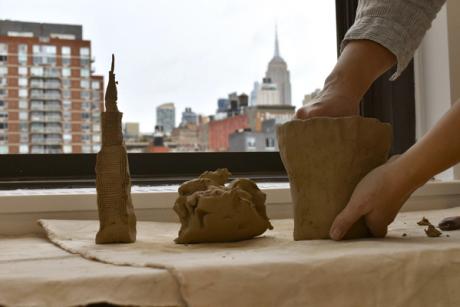
© » THEARTNEWSPER
about 20 months ago (02/12/2024)
Historic New York ceramic studio fires up second location Art market Museums & heritage Exhibitions Books Podcasts Columns Technology Adventures with Van Gogh Search Search Pottery news Historic New York ceramic studio fires up second location With its Jones Street home operating at full capacity, Greenwich House Pottery is opening a new outpost in Chelsea Hilarie M...

© » COLOSSAL
about 20 months ago (02/09/2024)
In museums or galleries, artist Sydnie Jimenez never saw figurative sculpture that looked like her or that felt relatable...
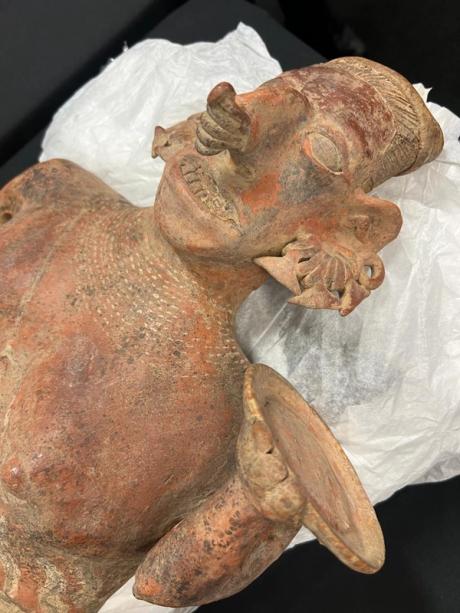
© » THEARTNEWSPER
about 20 months ago (02/09/2024)
30 archaeological artefacts returned to Mexican authorities in Los Angeles ceremony Art market Museums & heritage Exhibitions Books Podcasts Columns Technology Adventures with Van Gogh Search Search Museums & Heritage news 30 archaeological artefacts returned to Mexican authorities in Los Angeles ceremony Objects ranging from the 1st century to the 15th century were handed over at the Mexican consulate in Los Angeles earlier this month Benjamin Sutton 9 February 2024 Share An elaborately rendered ceramic figure that was handed over to Mexican authorities in Los Angeles on 1 February Mexico Ministry of Culture Anthropomorphic ceramic figures, necklace beads, vessels and more archaeological objects were turned over to Mexican authorities, including the country’s visiting secretary of foreign affairs, Alicia Bárcena Ibarra, during a ceremony this month at Mexico’s consulate in Los Angeles...

© » COLOSSAL
about 20 months ago (02/08/2024)
Does anyone else miss art school? The sweet smell of invasive ceramic dust, the satisfying scrape of fresh charcoal across a giant sheet of Strathmore, the mortifying class-wide critique of your meager attempt at drawing a poorly-lit vase that you really should have spent more time on but you were partying all night at Avery’s “performative art sequence” at that creepy abandoned carwash...
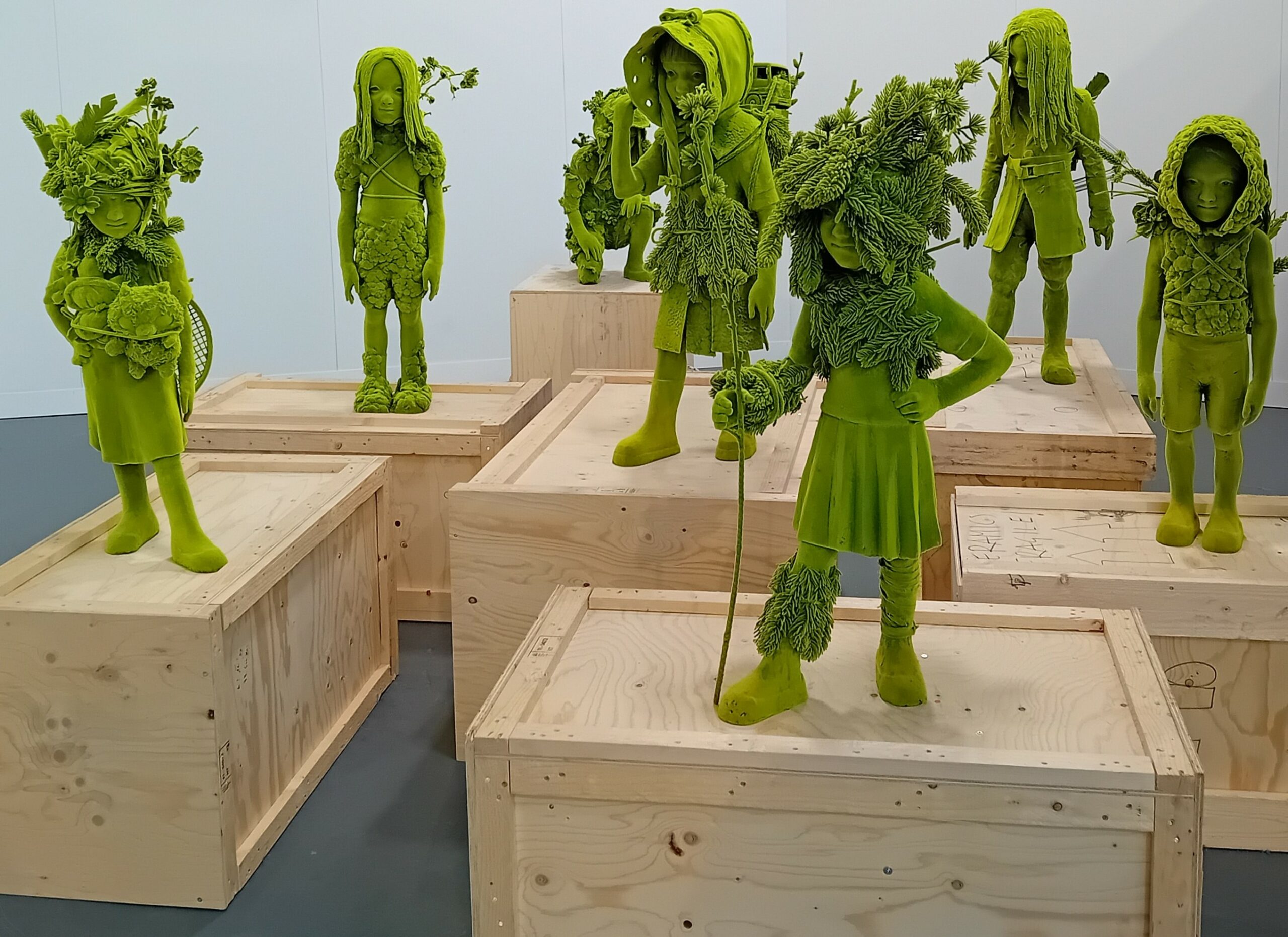
© » FAD MAGAZINE
about 20 months ago (02/07/2024)
Discover 10 Stunning Artworks at Ceramic Brussels - FAD Magazine Skip to content By Paul Carey-Kent • 7 February 2024 Share — Brussels has just hosted the world’s first fair dedicated specifically to contemporary ceramics, with 60 galleries at Tour & Taxis...
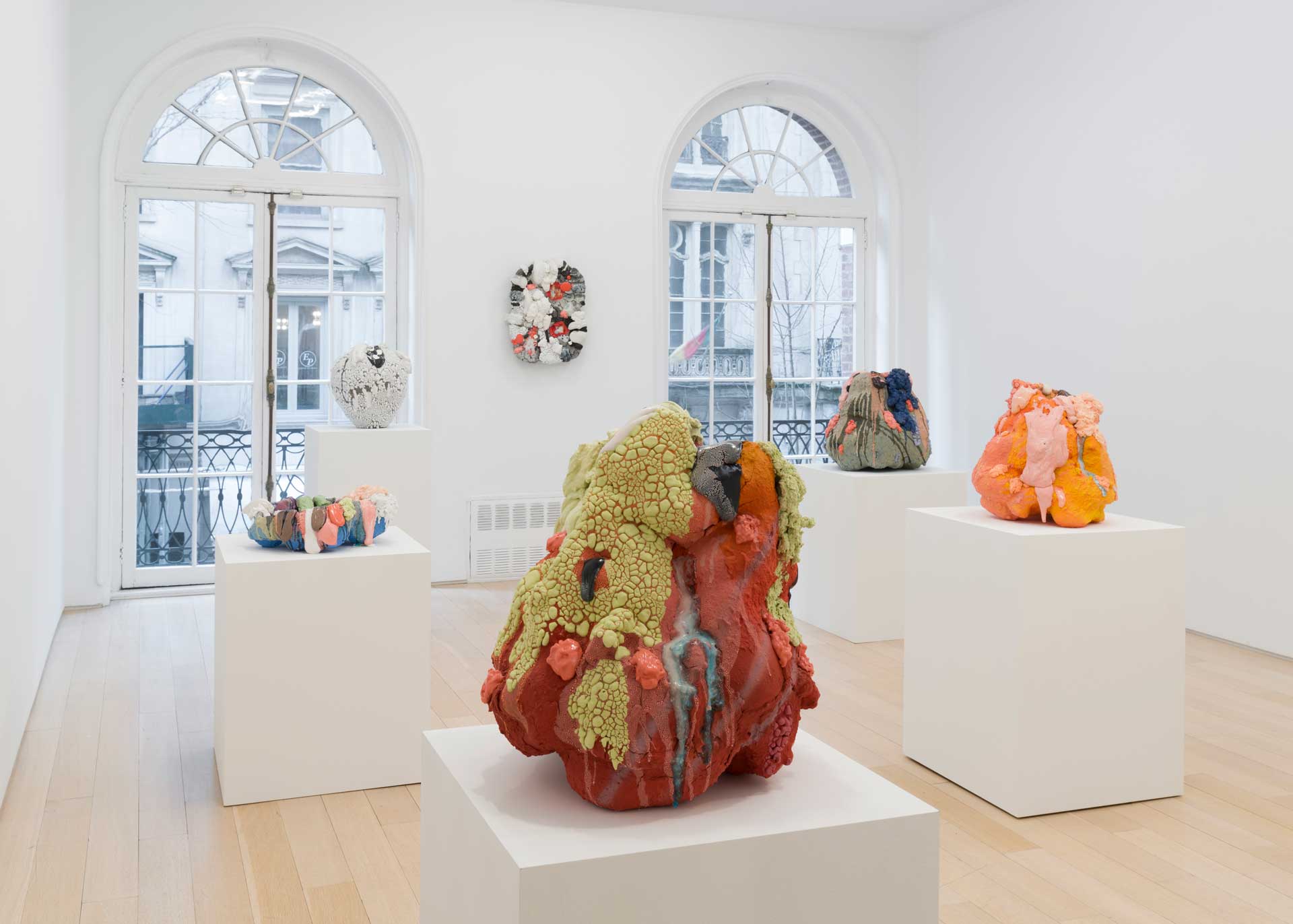
© » GALERIE MAGAZINE
about 20 months ago (02/05/2024)
8 Must-See Solo Gallery Shows in February 2024 - Galerie Subscribe Art + Culture Interiors Style + Design Emerging Artists Discoveries Artist Guide More Creative Minds Life Imitates Art Real estate Events Video Galerie House of Art and Design Subscribe About Press Advertising Contact Us Follow Galerie Sign up to receive our newsletter Subscribe Installation view, Brian Rochefort...

© » ARTFORUM
about 21 months ago (02/01/2024)
Title, Theme Announced for Sixth Aichi Triennale – Artforum Read Next: ART BASEL REVEALS EXHIBITOR LIST FOR 2024 SWISS FAIR Subscribe Search Icon Search Icon Search for: Search Icon Search for: Follow Us facebook twitter instagram youtube Alerts & Newsletters Email address to subscribe to newsletter...
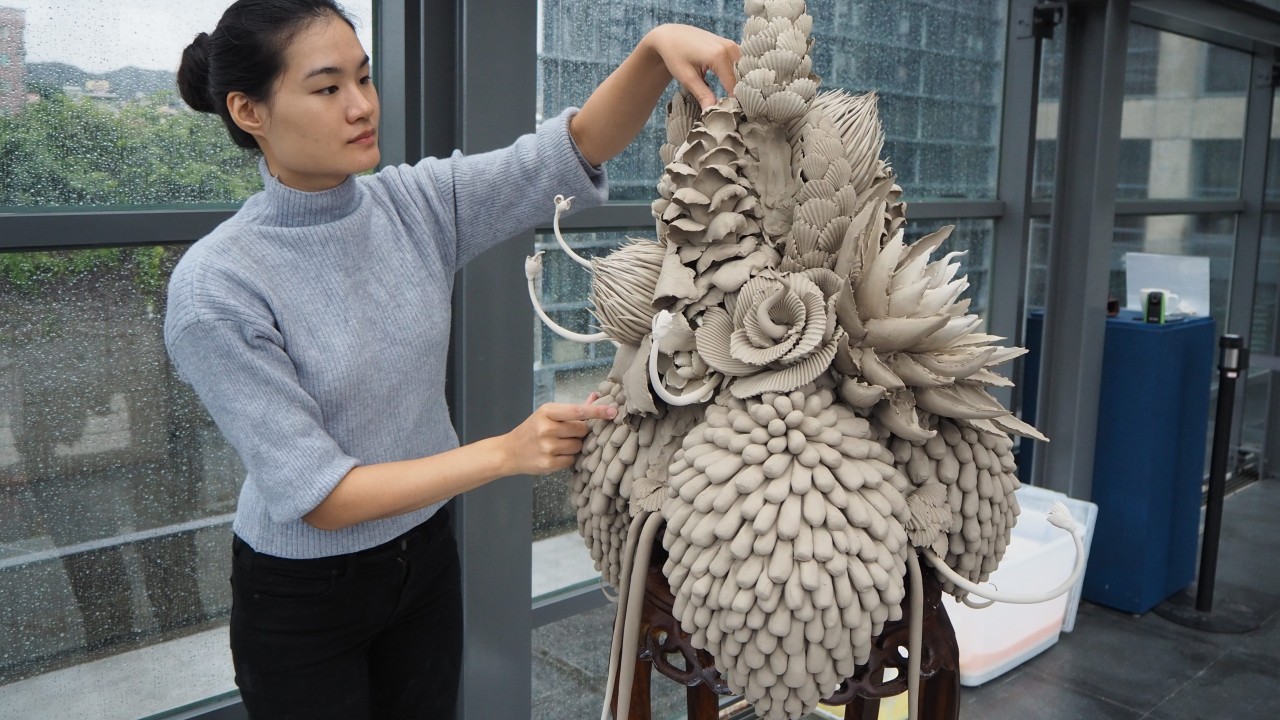
© » SOUTH CHINA MORNING POST
about 21 months ago (02/01/2024)
Why these ephemeral clay artworks by ceramicist Ruth Ju-shih Li will crumble in front of your eyes | South China Morning Post Advertisement Advertisement Art + FOLLOW Get more with my NEWS A personalised news feed of stories that matter to you Learn more Taiwanese-Australian ceramicist Ruth Ju-shih Li installs an ephemeral clay artwork at the New Taipei City Yingge Ceramics Museum, in Taiwan, in 2019...
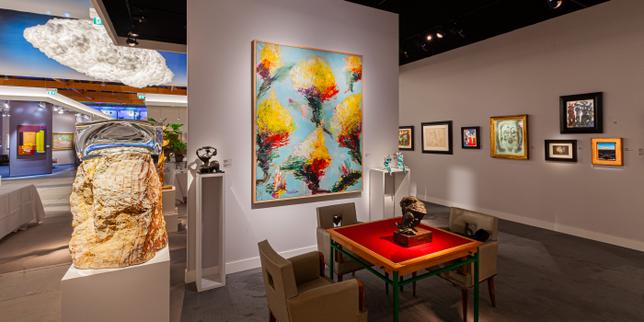
© » LE MONDE
about 21 months ago (01/31/2024)
A Bruxelles, les foires d’art prolifèrent avec la Brafa et Ceramic Cet article vous est offert Pour lire gratuitement cet article réservé aux abonnés, connectez-vous Se connecter Vous n'êtes pas inscrit sur Le Monde ? Inscrivez-vous gratuitement Article réservé aux abonnés Des œuvres de Kevin McNamee-Tweed et Anne Marie Laureys, de la galerie Tatjana Pieters, à la foire Ceramic, à Bruxelles, en janvier 2024...

© » SLASH PARIS
about 21 months ago (01/09/2024)
J’ai pleuré devant la fin d’un manga — Edouard-Manet de Gennevilliers Gallery — Exhibition — Slash Paris Login Newsletter Twitter Facebook J’ai pleuré devant la fin d’un manga — Edouard-Manet de Gennevilliers Gallery — Exhibition — Slash Paris English Français Home Events Artists Venues Magazine Videos Back Previous Next J’ai pleuré devant la fin d’un manga Exhibition Ceramic, drawing, film, lithography / engraving.....
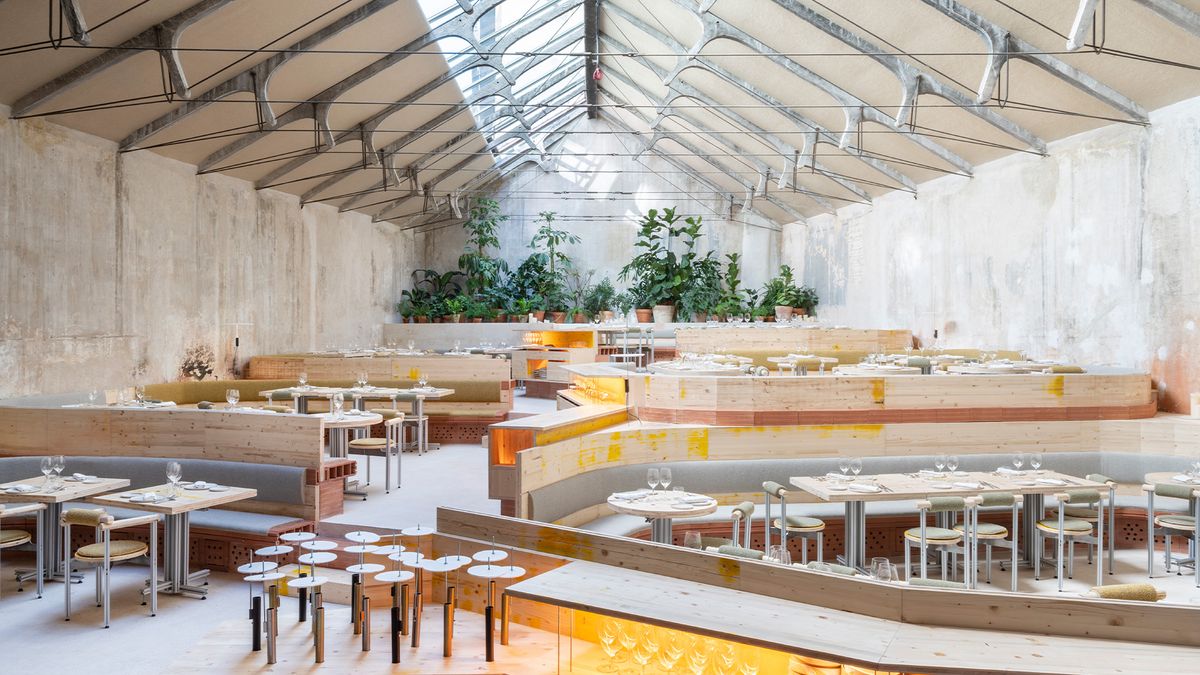
© » WALLPAPER*
about 22 months ago (12/18/2023)
Restaurant Tramo embraces a responsible future, bite by bite | Wallpaper (Image credit: Photography by Juan Baraja...
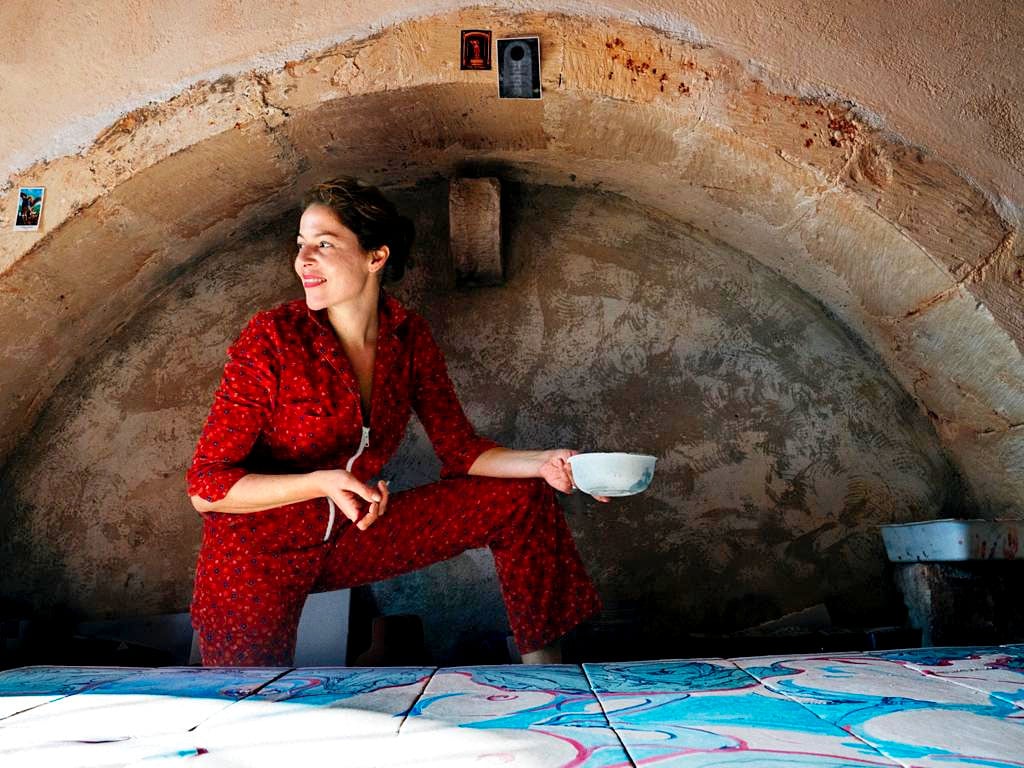
© » ARTNET
about 22 months ago (12/12/2023)
Her new show, “Cirica,” at her brother Vito Schnabel's New York gallery, is on view through January 20, 2024...

© » HYPERALLERGIC
about 22 months ago (12/12/2023)
Delcy Morelos Embraces Heaven and Earth Skip to content Installation view of Delcy Morelos, “Cielo terrenal” (Earthly heaven) (2023) in El abrazo at Dia Chelsea (all photos Louis Bury/Hyperallergic) Delcy Morelos’s El abrazo , Spanish for “the embrace,” is hard not to love...
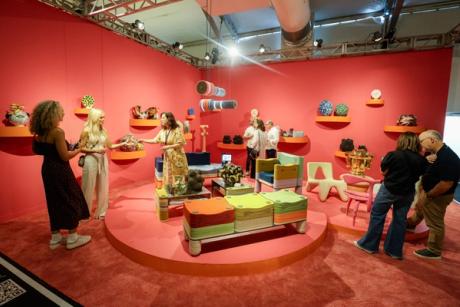
© » THEARTNEWSPER
about 22 months ago (12/09/2023)
In pictures: Design Miami makes a stand Art market Museums & heritage Exhibitions Books Podcasts Columns Technology Adventures with Van Gogh Search Search Art Basel in Miami Beach 2023 feature In pictures: Design Miami makes a stand Furniture clad in shingles, a tiger with a ceramic coat and a chair made of chains are some of the highlights of Design Miami 2023 Carlie Porterfield 9 December 2023 Share Visitors to Design Miami at one of the 50-plus stands at this year's edition Photo: Liliana Mora The 19th iteration of Design Miami, the city’s leading design fair, kicked off on Tuesday with more than 50 stands dedicated to furniture, homewares, ceramics and more...

© » COLOSSAL
about 22 months ago (12/08/2023)
The historic village of Bat Trang in northern Vietnam has been a hub for ceramic production since the 11th century...
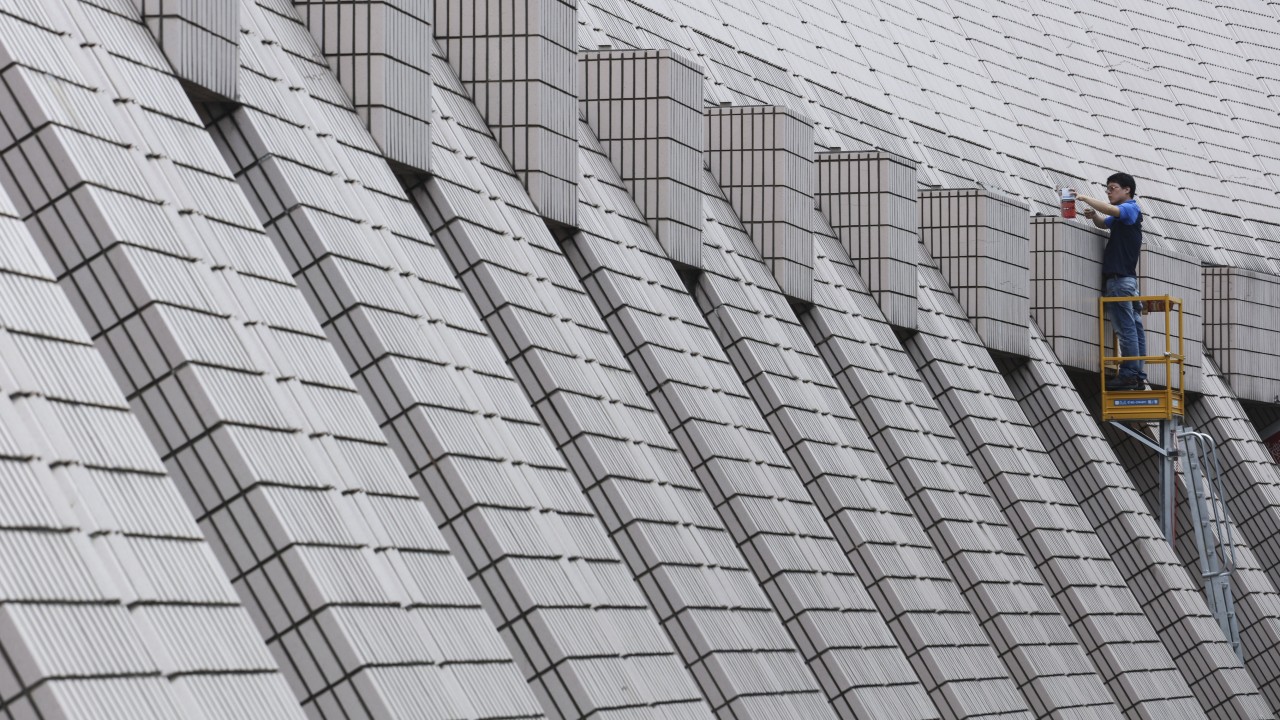
© » SOUTH CHINA MORNING POST
about 23 months ago (12/01/2023)
Opinion | How shoddy building construction prompted Hong Kong’s love of glazed ceramic tiles | South China Morning Post Advertisement Advertisement A worker cleans the dust-pink glazed ceramic tiles on the Hong Kong Cultural Centre in Tsim Sha Tsui...

© » SLASH PARIS
about 23 months ago (11/27/2023)
Romain Best — Coulissements par frictions — Frac île-de-france, le Plateau — Exhibition — Slash Paris Login Newsletter Twitter Facebook Romain Best — Coulissements par frictions — Frac île-de-france, le Plateau — Exhibition — Slash Paris English Français Home Events Artists Venues Magazine Videos Back Romain Best — Coulissements par frictions Exhibition Installation, sculpture, mixed media Romain Best, Coulissements par frictions, 2023 © Romain Best Romain Best Coulissements par frictions Ends in 27 days: November 9, 2023 → January 7, 2024 The Project Room is the Frac’s new prospective and experimental space, located in the last room of the Plateau...

© » TWOCOATSOFPAINT
about 23 months ago (11/26/2023)
Charles LeDray: Securing memory – Two Coats of Paint Charles LeDray, Shiner, 2015–2023, wood, mat board, acrylic paint, enamel paint, watercolor, polyurethane, fabric, leather, embroidery floss, acrylic yarn, silicone rubber, Lava soap, mother of pearl, Fimo, pretzel bits, rabbit fur, bubble gum, wax, cinnamon oil, shoe dye, metal, copper wire, electrical tape, acrylic, foil, pumice, plastic, eraser, letterpress print, printed paper, 5 3/4 x 34 x 23 7/8 inches Contributed by Barbara A...
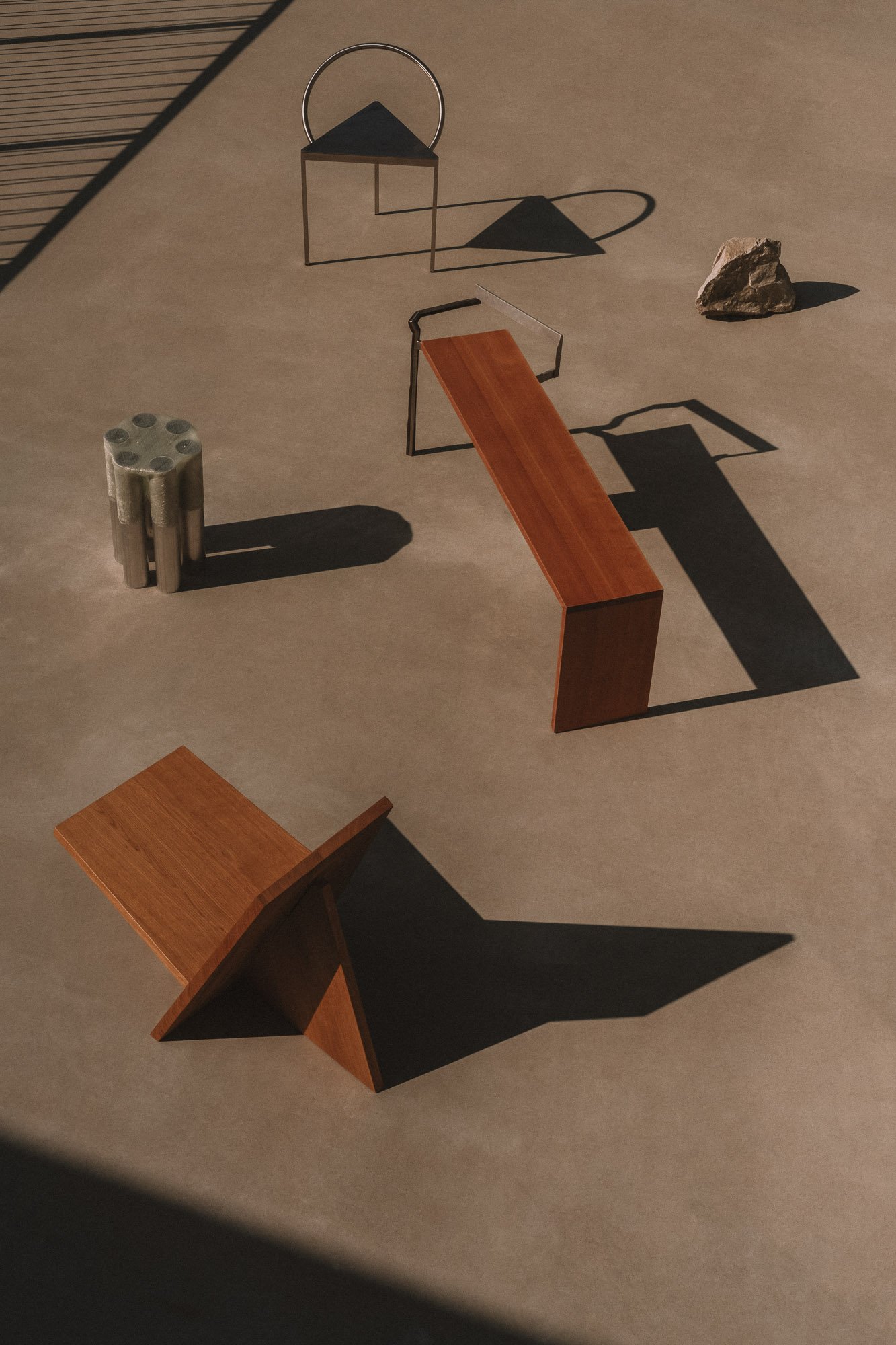
© » IGNANT
about 23 months ago (11/20/2023)
Furthering FORMA: Vanessa Heepen’s Exclusive Editorial Collaboration Blurs The Art-Design Divide - IGNANT Name FORMA Gallery Images Clemens Poloczek Words Anna Dorothea Ker To spatial designer and creative director Vanessa Heepen , design is inherently discursive...
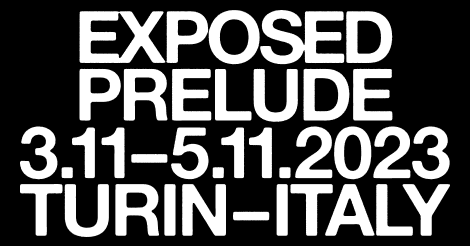
© » EYE OF PHOTOGRAPHY
about 24 months ago (10/27/2023)
© 2023 All rights reserved - The Eye of Photography Torino Foto Festival, Exposed Prelude Mariella Bettineschi, L’era successiva (El Greco, Signora con l’ermellino), 2022, Direct print on Plexiglass, Courtesy the artist and z2o Sara Zanin gallery, Roma Sharon Ya'ari, Immigrant, 1933, 2020, Archival pigment print 42 x 42 cm, Courtesy Sommer Contemporary Art, Tel Aviv / Zurich Rebecca Moccia, Cold as you are, 2022, Thermal picture printed on Hahnemühle cotton paper and raku ceramic, 48,3 × 32,9 cm, Courtesy the artist and Mazzoleni, London–Torino Claude Cahun, Autoportrait aux orchidées, 1939, Photograph, gelatin silver print on Velox paper, 10,2 × 7,8 cm, Courtesy Private Collection Alberta Pane / Patrice Garnier...

© » SLASH PARIS
about 25 months ago (09/19/2023)
Construire — Corrélations entre le dessin et la céramique — Espace d’art contemporain Camille Lambert — Exhibition — Slash Paris Login Newsletter Twitter Facebook Construire — Corrélations entre le dessin et la céramique — Espace d’art contemporain Camille Lambert — Exhibition — Slash Paris English Français Home Events Artists Venues Magazine Videos Back Construire — Corrélations entre le dessin et la céramique Exhibition Ceramic, drawing, mixed media, video Closing Hélène Mougin, La dune, 2023 Grès et faïence émaillés et photo résinée, 20 × 32 × 23 cm Hélène Mougin Construire Corrélations entre le dessin et la céramique Ends in 5 days: October 7 → December 16, 2023 Une idée se conçoit, se développe et devient projet construit...

© » BOMB
about 26 months ago (09/05/2023)
BOMB Magazine | Jennifer Ling Datchuk Interviewed Necessary (Required) Cookies that the site cannot function properly without...

© » SLASH PARIS
about 26 months ago (08/26/2023)
Chagall à l’œuvre — Dessins, céramiques et sculptures 1945-1970 — Centre Georges Pompidou — Exhibition — Slash Paris Login Newsletter Twitter Facebook Chagall à l’œuvre — Dessins, céramiques et sculptures 1945-1970 — Centre Georges Pompidou — Exhibition — Slash Paris English Français Home Events Artists Venues Magazine Videos Back Chagall à l’œuvre — Dessins, céramiques et sculptures 1945-1970 Exhibition Ceramic, drawing, sculpture Marc Chagall, Maquette pour le plafond de l’Opéra Garnier, 1963 Encre de Chine, mine graphite et feutre sur papier découpé — Diamètre : 33,5 cm Don de Mme Meret Meyer, 2022 Chagall à l’œuvre Dessins, céramiques et sculptures 1945-1970 Ends in 3 months: October 4, 2023 → February 26, 2024 This exhibition brings together a set of works that entered the collection in 2022, thanks to the generosity of Bella and Meret Meyer...

© » LONDONIST
about 27 months ago (07/20/2023)
Eel Pie Island Summer Opening 2023 | Londonist The Secretive Eel Pie Island Is Open To Visitors This Weekend By Will Noble Will Noble The Secretive Eel Pie Island Is Open To Visitors This Weekend Nothing to see here...

© » LARRY'S LIST
about 37 months ago (10/10/2022)
The new Onna House recently mounted its first exhibition “The Lightness of Being,” with work by five women artists working in ceramics....

© » LARRY'S LIST
about 37 months ago (10/05/2022)
Collector Robert Ellison Is Transforming the Way Ceramics Are Seen at the Met and the World Over - ARTnews...

© » LARRY'S LIST
about 37 months ago (10/05/2022)
Brooklyn-based art patron Carla Shen shares insights on her dynamic collection of ceramics, textiles, collage, and other dynamic works of contemporary art....

© » LARRY'S LIST
about 37 months ago (10/05/2022)
Lou and Sandy Grotta’s Richard Meier-designed home in New Jersey is a jewel box of ceramics, tapestries, basketry, and other handmade gems....

© » THE JEALOUS CURATOR
about 43 months ago (03/26/2022)
At her request, I’ve handed the host microphone over to my dear friend, New York based artist Petah Coyne...

© » HIGH FRUCTOSE
about 70 months ago (12/29/2019)
Masayoshi Hanawa’s intricate ceramic and resin creatures are pulled from the artist’s internal mythology...
-
1960-1969
Judy Chicago
1969Domes #1 represents a significant moment in Chicago’s career when her art began to change from a New York-influenced Abstract Expressionist style to one that reflected the pop-inflected art being made in Los Angeles...
-
1980-1989
Martin Kippenberger
Drawing & Print
1989(Drawing & Print) Untitled is a work on paper by Martin Kippenberger comprised of several seemingly disparate elements: cut-out images of a group of dancers, a japanese ceramic vase, and a pair of legs, are all combined with gestural, hand-drawn traces and additional elements such as a candy wrapper from a hotel in Monte Carlo and a statistical form from a federal government office in Wiesbaden, Germany...
-
2000-2009
Gabriel Orozco
2002Gabriel Orozco comments: “In the exhibition [Documenta 11, Kassel, 2002], I tried to connect with the photographs I took in Mali in July...
Nathalie Djurberg
2004Apparently Djurberg’s mother made a puppet theater and traveled around Göteborg performing during her childhood...
Shimabuku
2006For the two-channel work Asking the Repentistas – Peneira & Sonhador – to remix my octopus works Shimabuku asked two Brazilian street singers to compose a ballad about his previous works with octopi (in which he created traditional Japanese ceramic vessels to catch octopi, with a fisherman who took him on his boat to test them out as we can see on one of the channel)...
Matti Braun
2009During a residency in 2009 at L’appartement 22 in Rabat, the artist traveled in Morocco and Senegal on the traces of the German sculptor Arno Breker...
-
2010-2019
Adrian Villar Rojas
2010The two drawings in the Kadist Collection are part of a larger series entitled Las Mariposas Eternas (The Eternal Butterflies)...
Jedediah Caesar
2010After being cast, the resulting resin block used in JCA-25-SC was cut into thin slices obtaining a series of rectangular shapes that resemble ceramic tiles...
Thea Djordjadze
2010The sculpture And Shadows Will Follow is an angle piece that articulates a space since its appearance highly changes depending on the point of view...
Masaya Chiba
2011Fairy #2 (2011) depicts a surreal scene of roughly assembled household ephemera, potted plants, and a faintly visible figure rendered in thin red line...
Jeffry Mitchell
2012Poised with tool in hand, Jeffry Mitchell’s The Carpenter (2012) reaches forward, toward his workbench...
Jeffry Mitchell
2012Though the title might suggest an Adonis, Jeffry Mitchell’s The Swimmer (2012) is a squat, jolly man with a protuberant belly...
Adrian Villar Rojas
Drawing & Print
2012(Drawing & Print) Based on historical prophecies and fantasy, the artist creates apocalyptic scenarios that posit an enigmatic world plagued by social, political, and environmental upheaval...
Daniela Ortiz
2012In her work, Maids Room (2012) which is part of a series, Daniela Ortiz undertakes an architectural analysis of the houses belonging to the upper class of Lima...
Jessica Warboys
2013The ongoing “Sea Paintings” series is central to the practice of Jessica Warboys...
Daniela Ortiz
2013Previously, Ortiz produced a series of photographs related to her research on the position of ‘service architecture’, the vital space given to domestic servants in the modernist architectural houses of South American upper class families...
Anna-Bella Papp
2013Untitled exemplifies the format that Anna Bella-Papp most commonly works in, using her hands to create delicate tablet-like reliefs within a rectangular form made out of clay...
Ximena Garrido Lecca
2014Destilaciones ( Distillations , 2014) is an installation composed of a group of ceramic pots, presented on the floor and within a steel structure...
Taloi Havini
2015Following her family’s political exile to Australia in 1990, Havini began to document her journey’s home to the north of Buka Island, in the Autonomous Region of Bougainville...
Clarissa Tossin
2017Clarissa Tossin’s film Ch’u Mayaa responds to Frank Lloyd Wright’s Hollyhock House (constructed 1919–21) in Los Angeles, an example of Mayan Revival architecture...
Seba Calfuqueo
2017Alka domo by Seba Calfuqueo is a performative video work that recontextualizes a story about Caupolicán, the Mapuche toki (meaning symbol of strength and perseverance in the face of adversity)...
Antonio Pichillá
2017Wind by Antonio Pichillá is a textile piece depicting the glyph that represents the element wind in the Mayan tradition...
Claudia Martínez Garay
2019escenario chacana by Claudia Martínez Garay is a sculptural work composed of a frame-like structure that contains a series of ceramic pieces...
Cynthia Gutiérrez
2019Estratos II by artist Cynthia Gutiérrez features a large white plinth with a transversal cut through the lower half, revealing a collection of archeological objects...
Minia Biabiany
2019Qui vivra verra, Qui mourra saura is an installation by Minia Biabiany composed of the plan of a house made out of strips of salt, and a “garden” made of ceramic pieces, hanging from the ceiling and on the floor, and non woven fabric...
Erin Jane Nelson
2019In Erin Jane Nelson’s 2019 body of work Av, panels are covered in collaged images and shellacked with resin or epoxy: photographs of plants intermingle with pictures of men and women engaging in various spiritual activities, cartoons of mothers and their children, or black and white images of window panes...
Leelee Chan
2019Blindfold Receptor (caterpillar-yellow) by Leelee Chan is inspired by the camouflaging nature of the peppered-moth caterpillar...
Matthew Lutz-Kinoy
2019The Lion’s Hunt by Matthew Lutz-Kinoy is a large format painting that recalls Delacroix’s paintings and tapestries from the 19th century, where the painterly surface became a garden invaded by wild beasts...
-
2020-2029
Natsuko Uchino
2020Squid Currency is a series of 13 non-calibrated double-sided tin coins made using a casting technique dating back to Neolithic times where cuttlebones (squid bones) were carved by hand and then used as a mold...
Phoebe Collings-James
2021The Subtle Rules the Dense is a series of masks/torsos/body plates that Phoebe Collings-James cast from mannequins and then worked by hand...
Daniela Ortiz
2021The Rebellion of Roots by Daniela Ortiz depicts a series of situations in which tropical plants, held hostage in the botanical gardens and greenhouses of Europe, are protected and nurtured by the spirits of racialized people who died as a result of European racism...
Cross Lypka
2022tombs and ignitions is a collaborative ceramic sculpture by artists Tyler Cross and Kyle Lypka...














